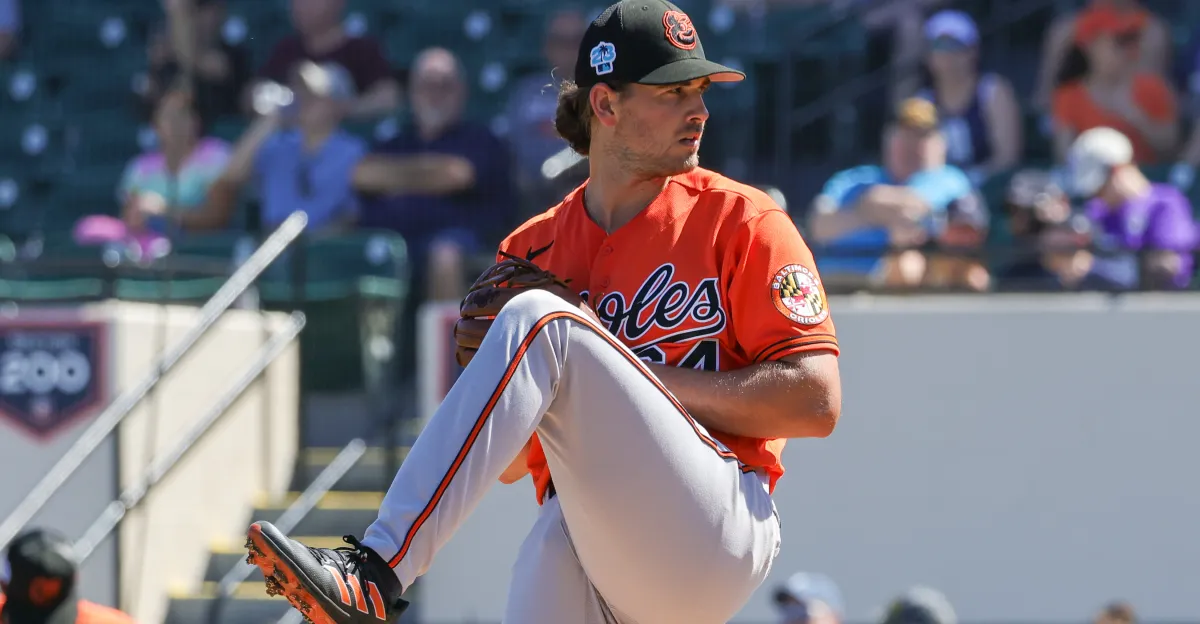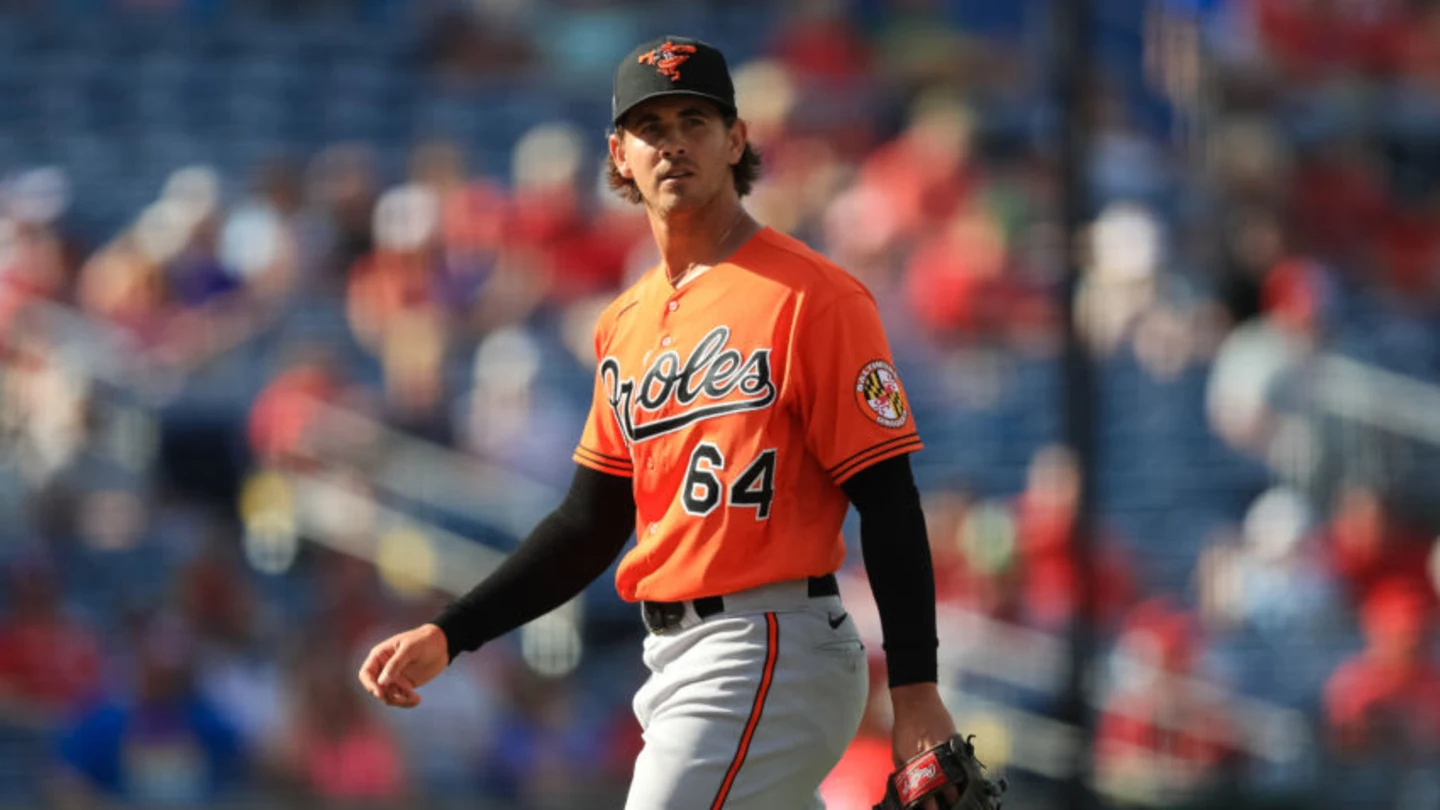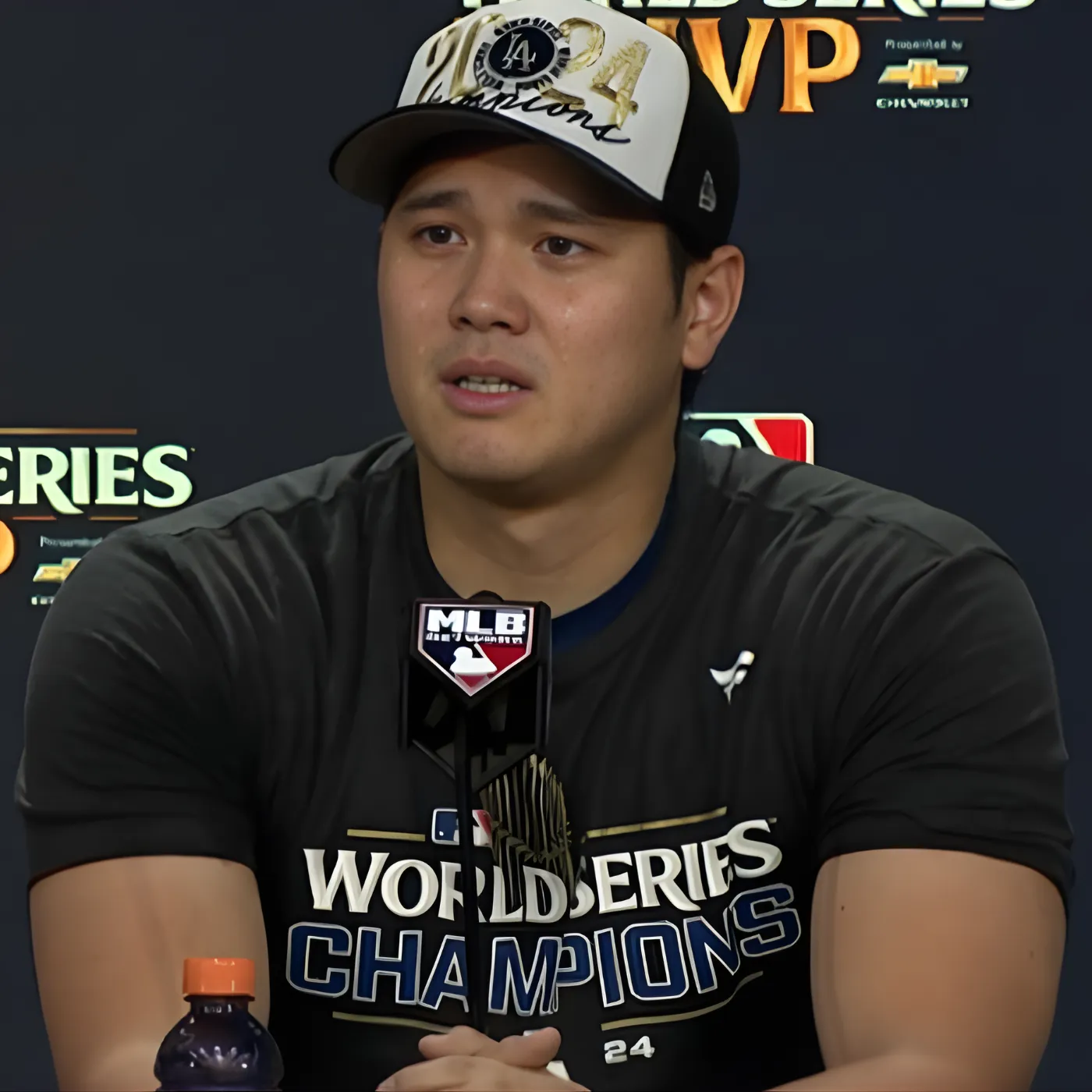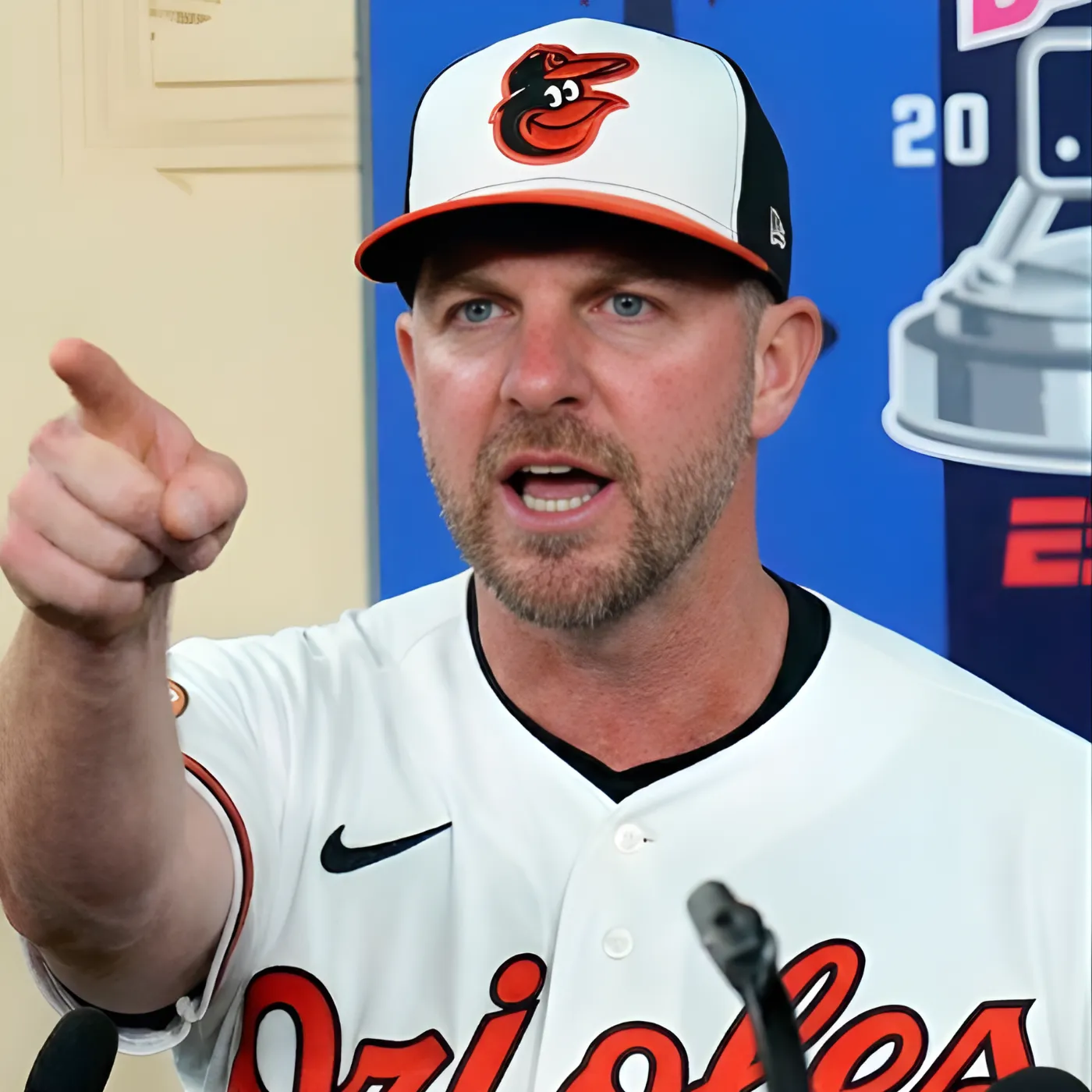

Does Dean Kremer deserve to keep his spot in the Orioles lineup or is it time for the Orioles to make a bold decision about changing his position?
Dean Kremer has reached a critical crossroads in his career with the Baltimore Orioles. Once regarded as a rising arm capable of solidifying the back end of the rotation, Kremer now finds himself the subject of growing debate among analysts, fans, and even the Orioles’ coaching staff. His most recent outing—a disastrous start in which he allowed three home runs in the very first inning against the Houston Astros—has once again brought his inconsistency into sharp focus. Despite flashes of brilliance, Kremer’s 2025 season has been riddled with volatility. He has delivered eight quality starts, proving he can compete at a high level, but he has also surrendered at least five earned runs in eight of his 26 appearances.
This begs the question: is Dean Kremer reliable enough to remain a fixture in Baltimore’s rotation, or should the Orioles consider a bold move, whether by reshuffling roles or looking for alternatives?
Kremer’s Nightmare in Houston: A Symbol of Larger Concerns
The August matchup against the Astros encapsulated much of the frustration surrounding Kremer’s 2025 campaign. From the very first pitch, things spiraled out of control. The right-hander surrendered three home runs in the opening frame, immediately putting his team in a 5–0 hole. While he managed to stabilize somewhat and last five innings, giving up seven runs (six earned) on seven hits with four strikeouts and one walk, the damage was already done.
This outing was far from an isolated incident. It reinforced a troubling pattern: Kremer often finds himself one or two mistakes away from complete collapse. While many pitchers struggle against the Astros’ potent lineup, Kremer’s inability to contain the early barrage raised concerns about his mechanics and his mental resilience under pressure.
And yet, there was a silver lining. By pitching through five innings, he saved the bullpen from being overexposed—a small but notable act of professionalism. But in a season defined by playoff expectations, is “damage control” enough?
The Tale of Two Pitchers: Kremer’s Inconsistency in 2025

One of the most challenging aspects of evaluating Dean Kremer is the duality of his performances.
-
On one hand, his ERA of 4.19 and WHIP of 1.23 suggest a pitcher who hovers around league average, capable of delivering respectable outings. His 127 strikeouts against just 38 walks across 152.1 innings indicate decent control and the ability to generate swings and misses.
-
On the other hand, his volatility is alarming. Kremer has turned in eight quality starts, proving he can limit runs and go deep into games. Yet, in another eight starts, he has been shelled for five or more earned runs, erasing any momentum he builds.
This inconsistency is perhaps the most damning part of Kremer’s profile. For a contending team like the Orioles—who cannot afford wasted starts in a competitive AL East—such unpredictability is a liability.
Mechanics, Confidence, and the Mental Game
Pitching is not merely a physical act; it is also deeply psychological. Kremer’s recent struggles appear to stem not only from mechanical lapses but also from confidence issues. Analysts noted during his start against Houston that his delivery seemed slightly off—possibly due to a slip in rhythm or minor timing errors. Such small deviations can drastically reduce pitch effectiveness, turning a cutter that usually breaks late into a hittable ball in the middle of the plate.
Equally critical is Kremer’s mindset when adversity strikes. Some pitchers possess an uncanny ability to shake off a bad inning and prevent further damage. Kremer, however, has shown a tendency to unravel when things go wrong early, as evidenced by his rocky first innings this year. This inability to “reset” mid-game is a flaw that erodes trust from both teammates and coaches.
Comparing Kremer to His Rotation Peers
When evaluating whether Kremer deserves his spot, context matters. The Orioles’ rotation in 2025 has been a mix of strengths and weaknesses. With young arms pushing for opportunities and veterans trying to maintain stability, competition for starting roles is fierce.
Compared to his peers, Kremer’s numbers are serviceable but uninspiring. Pitchers like Grayson Rodriguez and Kyle Bradish have shown stronger upside, while others have been more consistent. In such an environment, “average” may not be enough. A playoff-caliber team cannot afford a fifth starter who alternates between dominant and disastrous.
The Orioles’ Dilemma: Stick or Twist?
The Orioles now face a critical decision. Should they keep Kremer in the rotation, banking on his experience and occasional brilliance, or should they consider alternatives?
-
Case for Keeping Him: Kremer eats innings, saving the bullpen from overuse. His strikeout-to-walk ratio is respectable, and his ceiling remains high if he can iron out inconsistencies. Removing him might destabilize a rotation already managing injuries and workload.
-
Case for Replacing Him: His volatility makes him unreliable in high-stakes games. For a team with postseason aspirations, a starter who implodes one out of every three games is a liability. Younger pitchers waiting in Triple-A or trade acquisitions could provide more consistency.
This dilemma is not just about Kremer’s talent—it is about timing and the Orioles’ ambitions.
Fan Reactions: Divided and Vocal
Among Orioles fans, Kremer’s place in the rotation has sparked passionate debate. Some supporters highlight his perseverance and argue that he deserves patience. They point to his flashes of dominance as proof that he can turn things around. Others are far less forgiving, insisting that a contending team cannot afford to carry a starter who feels like a coin flip every time he takes the mound.
Social media discussions after the Astros game were filled with frustration. Many questioned whether the Orioles could trust Kremer in meaningful September or playoff games. The divide underscores the emotional weight of his performances: he inspires either cautious optimism or deep skepticism, with little in between.
A Closer Look at the Stats
Numbers often reveal truths that narratives cannot. Consider these points:
-
ERA (4.19): While slightly above league average, it does not inspire confidence for a mid-rotation starter on a playoff team.
-
WHIP (1.23): Suggests decent control and limits on baserunners, highlighting that his biggest issue is not constant traffic but damage from mistakes.
-
Home Runs Allowed: The three homers against Houston are part of a worrying trend. Kremer has been prone to the long ball, which turns small lapses into devastating innings.
-
Strikeout-to-Walk Ratio (127:38): Solid, showing command of the strike zone. But command without consistency in execution does not always equal success.
In essence, Kremer’s profile is one of competence undermined by volatility.
The Bigger Picture: Orioles’ Playoff Aspirations
Ultimately, the debate about Dean Kremer is not about one pitcher—it is about the Orioles’ larger goals. Baltimore has emerged as a legitimate contender, with young talent and a powerful lineup pushing them into the postseason conversation. In such a context, every rotation spot matters.
A stable rotation is the backbone of October success. The Orioles must ask themselves: can they trust Kremer in a playoff start? If the answer is no, then his regular-season role must be re-evaluated now, before October exposes the weakness.

Possible Paths Forward
What options do the Orioles realistically have?
-
Stay the Course: Keep Kremer in the rotation, hoping that his positives outweigh the negatives and that mechanical adjustments restore stability.
-
Move Him to the Bullpen: Kremer’s fastball-cutter combination could play up in shorter stints, making him a valuable long reliever or high-leverage option.
-
Trade or Replace: Though unlikely mid-season, the Orioles could eventually look outside the organization for a more reliable starter, or give opportunities to younger prospects.
Each option carries risks, but doing nothing may be the riskiest of all.
Conclusion: The Bold Decision Ahead
Dean Kremer’s 2025 season has been a roller coaster of highs and lows. His recent implosion against the Astros magnified every concern about his reliability. On paper, he is not a disaster—his ERA and WHIP suggest a pitcher who belongs in MLB. Yet for a team with championship aspirations, being “good enough” may not be good enough.
The Orioles stand at a crossroads. They can continue to trust Kremer, hoping for stability, or they can make the bold decision to reshape the rotation. Whatever they choose, the debate around Kremer highlights a deeper truth about baseball at the highest level: consistency, not flashes of brilliance, is the ultimate currency.
In the weeks to come, the Orioles must decide whether Dean Kremer is part of their postseason formula—or whether his role needs to change for the team to achieve its potential.
Related News


















